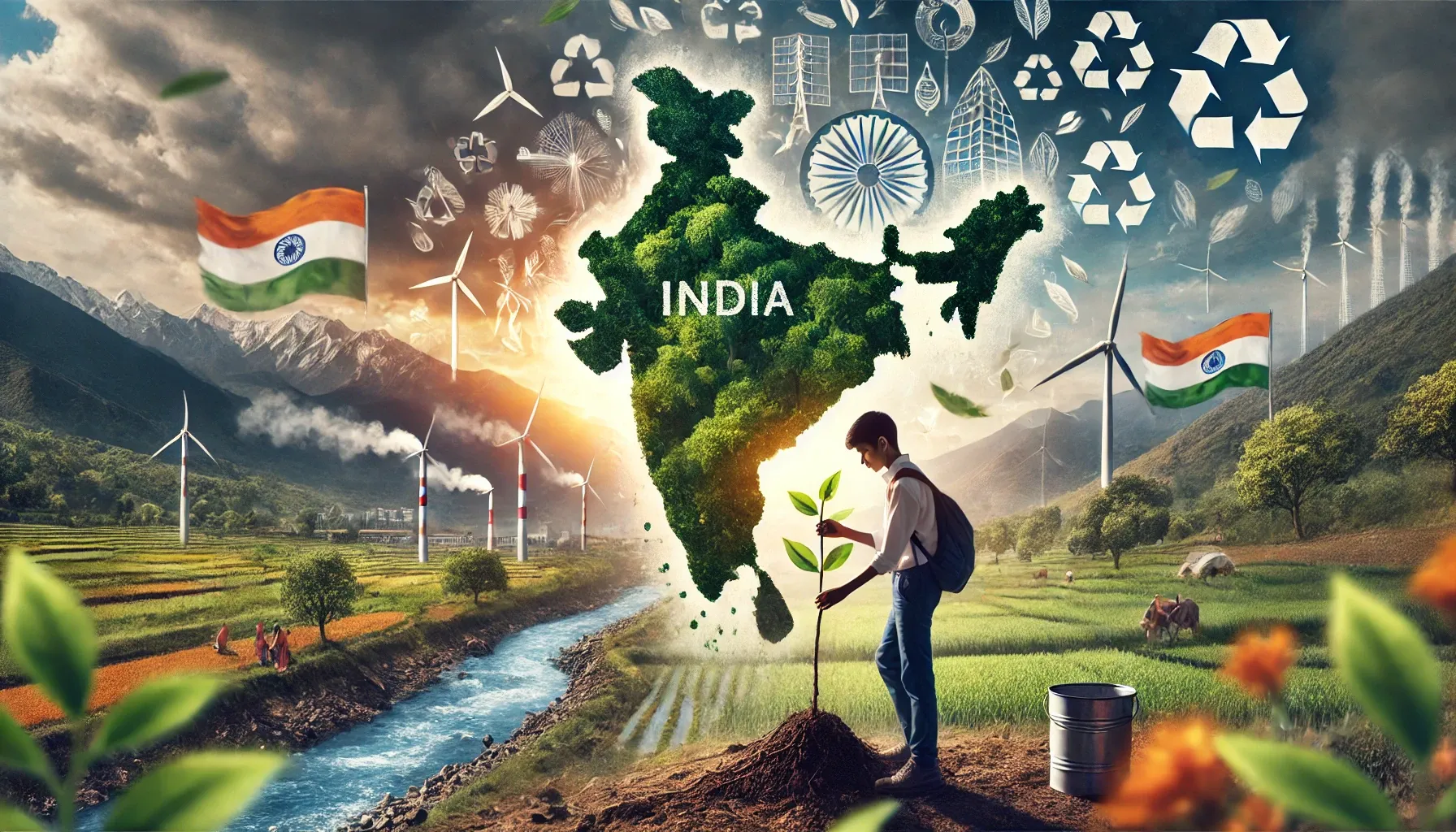UPSC
Exam Nugget
Evolution of Indian Environmentalism: Three Waves Explored
Last Updated
8th April, 2025
Date Published
8th April, 2025
Share This Post With Someone


- Origins of Environmentalism: Modern environmentalism emerged as a response to the Industrial Revolution, which began in Europe and spread globally, causing widespread ecological damage through fossil fuel use and industrialization.
- First Wave (Pre-Independence): Early 20th-century Indian thinkers, like those in Ramachandra Guha’s book Speaking with Nature, foresaw environmental destruction during India’s initial industrialization, coinciding with the freedom struggle.
- Key Figures: Intellectuals such as Rabindranath Tagore and Mahatma Gandhi (excluded from Guha’s list) critiqued Western industrial models, laying the foundation for India’s environmental consciousness.
- Second Wave (Chipko Movement): Starting in 1973, the Chipko Movement marked a grassroots response to deforestation in the Himalayas, using non-violent protests to blend ecological sustainability with social justice.
- Activism Shift: Unlike the intellectual focus of the first wave, the second wave involved mass participation, emphasizing community action and ecological restoration over mere critique.
- Economic Liberalization Impact: Post-1990s deregulation boosted economic growth but weakened environmental safeguards, intensifying air pollution, river degradation, and resource depletion.
- Third Wave (Contemporary): Today’s environmentalism grapples with climate change and urbanization, seeking sustainable development amid industrial growth, inspired by past thinkers.
- Social Justice Link: Indian environmentalism uniquely ties ecological protection to equity, addressing the disproportionate burden of degradation on the poor, unlike Western models focused solely on nature.
- Policy Critique: Guha notes that successive governments prioritized economic gains over environmental regulation, a trend evident since liberalization, worsening ecological crises.
- Global Context: India’s environmental thought predates Western movements like Rachel Carson’s Silent Spring, offering a distinct “environmentalism of the poor” rooted in livelihood concerns.
Glossary
- Industrial Revolution: A period of rapid industrial growth starting in the 18th century, driven by fossil fuels, leading to significant environmental changes.
- Chipko Movement: A 1970s forest conservation effort in India where villagers hugged trees to prevent logging, symbolizing grassroots environmentalism.
- Ecological Sustainability: Maintaining natural ecosystems to support life and resources for future generations.
- Grassroots: Movements or actions originating from local communities rather than top-down authorities.
- Liberalisation: The process of reducing government regulations, particularly in the economy, to encourage private sector growth.
Link To The Original Article – https://www.thehindu.com/books/books-authors/ramachandra-guha-on-the-three-waves-of-indian-environmentalism/article69421911.ece